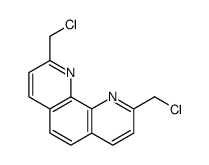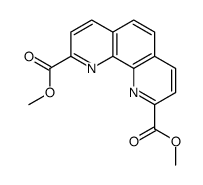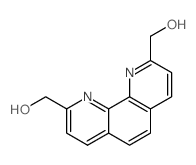484-11-7
| 中文名 | 新铜试剂 |
|---|---|
| 英文名 | 2,9-Dimethyl-1,10-Phenanthroline |
| 中文别名 |
2,9-二甲基邻菲啰啉
新亚铜试剂 2,9-二甲基-1,10-邻菲罗啉 新亚铜试剂半水合物 2.9-二甲基-1.10-菲罗啉 2,9-二甲基-1,10-邻菲咯啉 9-二甲基-1,10-邻菲洛啉 双喹哪啶 2,9-二甲基-1,10-菲啰啉 2,9-二甲基-1,10-邻菲洛啉 |
| 英文别名 |
2,9-Dimethyl-1,10-phenanthroline Hemihydrate
EINECS 207-601-9 Neocuproine 2,9-Dimethyl-1,10-phenanthroline 2,9-Dimethyl-1, 10-Phenanthroline MFCD00004973 Neocuproine hemihydrate |
| 密度 | 1.2±0.1 g/cm3 |
|---|---|
| 沸点 | 367.4±37.0 °C at 760 mmHg |
| 熔点 | 159-164 °C |
| 分子式 | C14H12N2 |
| 分子量 | 208.258 |
| 闪点 | 159.7±17.8 °C |
| 精确质量 | 208.100052 |
| PSA | 25.78000 |
| LogP | 2.70 |
| 外观性状 | 淡黄色-灰白色晶体 |
| 蒸汽压 | 0.0±0.8 mmHg at 25°C |
| 折射率 | 1.693 |
| 储存条件 | 密封保存,放置于通风、干燥地方,避免于其他氧化物接触。 |
| 稳定性 | 按规格使用和贮存,不会发生分解,避免与氧化物接触 |
| 水溶解性 | slightly soluble |
| 分子结构 | 1、 摩尔折射率:67.77 2、 摩尔体积(m3/mol):176.6 3、 等张比容(90.2K):478.5 4、 表面张力(dyne/cm):53.8 5、 极化率(10 -24cm 3):26.86 |
| 计算化学 | 1.疏水参数计算参考值(XlogP):3.3 2.氢键供体数量:0 3.氢键受体数量:2 4.可旋转化学键数量:0 5.互变异构体数量:无 6.拓扑分子极性表面积25.8 7.重原子数量:16 8.表面电荷:0 9.复杂度:227 10.同位素原子数量:0 11.确定原子立构中心数量:0 12.不确定原子立构中心数量:0 13.确定化学键立构中心数量:0 14.不确定化学键立构中心数量:0 15.共价键单元数量:1 |
| 更多 | 1. 性状:未确定 2. 密度(g/ m3,25/4℃):未确定 3. 相对蒸汽密度(g/cm3,空气=1):未确定 4. 熔点(ºC):159-164 5. 沸点(ºC,常压):未确定 6. 沸点(ºC,5.2kPa):未确定 7. 折射率:未确定 8. 闪点(ºF):未确定 9. 比旋光度(º):未确定 10. 自燃点或引燃温度(ºC):未确定 11. 蒸气压(kPa,25ºC):未确定 12. 饱和蒸气压(kPa,60ºC):未确定 13. 燃烧热(KJ/mol):未确定 14. 临界温度(ºC):未确定 15. 临界压力(KPa):未确定 16. 油水(辛醇/水)分配系数的对数值:未确定 17. 爆炸上限(%,V/V):未确定 18. 爆炸下限(%,V/V):未确定 19. 溶解性:微溶于水 |
Synonym:Neocuproine hemihydrat Section 2 - COMPOSITION, INFORMATION ON INGREDIENTS
Risk Phrases: None Listed. Section 3 - HAZARDS IDENTIFICATION EMERGENCY OVERVIEW
Light sensitive.The toxicological properties of this material have not been fully investigated. Potential Health Effects Eye: Causes eye irritation. Skin: Causes skin irritation. Ingestion: May cause gastrointestinal irritation with nausea, vomiting and diarrhea. The toxicological properties of this substance have not been fully investigated. Inhalation: Causes respiratory tract irritation. The toxicological properties of this substance have not been fully investigated. Chronic: No information found. Section 4 - FIRST AID MEASURES Eyes: Immediately flush eyes with plenty of water for at least 15 minutes, occasionally lifting the upper and lower eyelids. Get medical aid. Skin: Immediately flush skin with plenty of water for at least 15 minutes while removing contaminated clothing and shoes. Get medical aid if irritation develops or persists. Ingestion: If victim is conscious and alert, give 2-4 cupfuls of milk or water. Never give anything by mouth to an unconscious person. Get medical aid. Inhalation: Remove from exposure and move to fresh air immediately. If not breathing, give artificial respiration. If breathing is difficult, give oxygen. Get medical aid. Notes to Physician: Section 5 - FIRE FIGHTING MEASURES General Information: As in any fire, wear a self-contained breathing apparatus in pressure-demand, MSHA/NIOSH (approved or equivalent), and full protective gear. During a fire, irritating and highly toxic gases may be generated by thermal decomposition or combustion. Extinguishing Media: Use water spray, dry chemical, carbon dioxide, or chemical foam. Section 6 - ACCIDENTAL RELEASE MEASURES General Information: Use proper personal protective equipment as indicated in Section 8. Spills/Leaks: Vacuum or sweep up material and place into a suitable disposal container. Reduce airborne dust and prevent scattering by moistening with water. Clean up spills immediately, observing precautions in the Protective Equipment section. Section 7 - HANDLING and STORAGE Handling: Wash thoroughly after handling. Wash hands before eating. Use with adequate ventilation. Avoid contact with skin and eyes. Avoid ingestion and inhalation. Store protected from light. Storage: Store in a cool, dry place. Do not store in direct sunlight. Store in a tightly closed container. Section 8 - EXPOSURE CONTROLS, PERSONAL PROTECTION Engineering Controls: Use adequate ventilation to keep airborne concentrations low. Exposure Limits CAS# 484-11-7: Personal Protective Equipment Eyes: Wear appropriate protective eyeglasses or chemical safety goggles as described by OSHA's eye and face protection regulations in 29 CFR 1910.133 or European Standard EN166. Skin: Wear appropriate gloves to prevent skin exposure. Clothing: Wear appropriate protective clothing to prevent skin exposure. Respirators: Follow the OSHA respirator regulations found in 29 CFR 1910.134 or European Standard EN 149. Use a NIOSH/MSHA or European Standard EN 149 approved respirator if exposure limits are exceeded or if irritation or other symptoms are experienced. Section 9 - PHYSICAL AND CHEMICAL PROPERTIES Physical State: Solid Color: off-white Odor: Not available. pH: Not available. Vapor Pressure: Not available. Viscosity: Not available. Boiling Point: Not available. Freezing/Melting Point: 160 deg C Autoignition Temperature: Not available. Flash Point: Not available. Explosion Limits, lower: Not available. Explosion Limits, upper: Not available. Decomposition Temperature: Not available. Solubility in water: Soluble in water. Specific Gravity/Density: Not available. Molecular Formula: C14H12N2.0.5H2O Molecular Weight: 225.1038 Section 10 - STABILITY AND REACTIVITY Chemical Stability: Stable under normal temperatures and pressures. Conditions to Avoid: Incompatible materials, light. Incompatibilities with Other Materials: Strong oxidizing agents. Hazardous Decomposition Products: Nitrogen oxides, carbon monoxide, irritating and toxic fumes and gases, carbon dioxide. Hazardous Polymerization: Has not been reported. Section 11 - TOXICOLOGICAL INFORMATION RTECS#: CAS# 484-11-7 unlisted. LD50/LC50: Not available. Carcinogenicity: 2,9-Dimethyl-1,10-phenanthroline - Not listed by ACGIH, IARC, or NTP. Section 12 - ECOLOGICAL INFORMATION Section 13 - DISPOSAL CONSIDERATIONS Products which are considered hazardous for supply are classified as Special Waste and the disposal of such chemicals is covered by regulations which may vary according to location. Contact a specialist disposal company or the local waste regulator for advice. Empty containers must be decontaminated before returning for recycling. Section 14 - TRANSPORT INFORMATION IATA Not regulated as a hazardous material. IMO Not regulated as a hazardous material. RID/ADR Not regulated as a hazardous material. Section 15 - REGULATORY INFORMATION European/International Regulations European Labeling in Accordance with EC Directives Hazard Symbols: Not available. Risk Phrases: Safety Phrases: WGK (Water Danger/Protection) CAS# 484-11-7: 1 Canada CAS# 484-11-7 is listed on Canada's DSL List. CAS# 484-11-7 is not listed on Canada's Ingredient Disclosure List. US FEDERAL TSCA CAS# 484-11-7 is listed on the TSCA inventory. SECTION 16 - ADDITIONAL INFORMATION N/A |
|
生态学数据: 该物质对环境可能有危害,对水体应给予特别注意。
|
| 符号 |

GHS07 |
|---|---|
| 信号词 | Warning |
| 危害声明 | H315-H319-H335 |
| 警示性声明 | P261-P305 + P351 + P338 |
| 个人防护装备 | dust mask type N95 (US);Eyeshields;Gloves |
| 危害码 (欧洲) | Xn:Harmful; |
| 风险声明 (欧洲) | R20/21/22;R36/37/38 |
| 安全声明 (欧洲) | S26-S36/37/39 |
| 危险品运输编码 | NONH for all modes of transport |
| WGK德国 | 3 |
| 海关编码 | 29339990 |
|
~41% 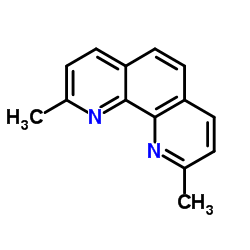
484-11-7 |
| 文献:De, Kavita; Legros, Julien; Crousse, Benoit; Chandrasekaran, Srinivasan; Bonnet-Delpon, Daniele Organic and Biomolecular Chemistry, 2011 , vol. 9, # 2 p. 347 - 350 |
|
~59% 
484-11-7 |
| 文献:Chelucci, Giorgio; Addis, Daniele; Baldino, Salvatore Tetrahedron Letters, 2007 , vol. 48, # 19 p. 3359 - 3362 |
|
~% 
484-11-7 |
| 文献:Case Journal of the American Chemical Society, 1948 , vol. 70, p. 3994 |
|
~% 
484-11-7 |
| 文献:Pijper; Van der Goot; Timmerman; Nauta Th. European Journal of Medicinal Chemistry, 1984 , vol. 19, # 5 p. 399 - 404 |
|
~% 
484-11-7 |
| 文献:Arnaud-Neu, Francoise; Marques, Elizabete; Schwing-Weill, Marie-Jose; Dietrich-Buchecker, Christiane; Sauvage, Jean-Pierre; Weiss, Jean New Journal of Chemistry, 1988 , vol. 12, p. 15 - 20 |
| 上游产品 7 | |
|---|---|
| 下游产品 10 | |
| 海关编码 | 2933990090 |
|---|---|
| 中文概述 | 2933990090. 其他仅含氮杂原子的杂环化合物. 增值税率:17.0%. 退税率:13.0%. 监管条件:无. 最惠国关税:6.5%. 普通关税:20.0% |
| 申报要素 | 品名, 成分含量, 用途, 乌洛托品请注明外观, 6-己内酰胺请注明外观, 签约日期 |
| Summary | 2933990090. heterocyclic compounds with nitrogen hetero-atom(s) only. VAT:17.0%. Tax rebate rate:13.0%. . MFN tariff:6.5%. General tariff:20.0% |


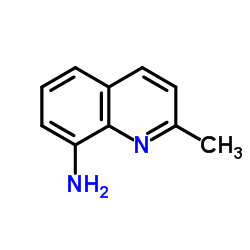
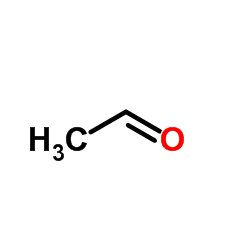
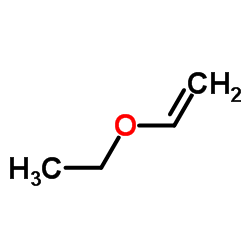
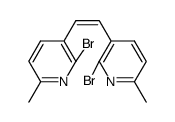
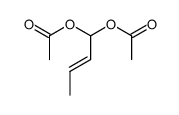
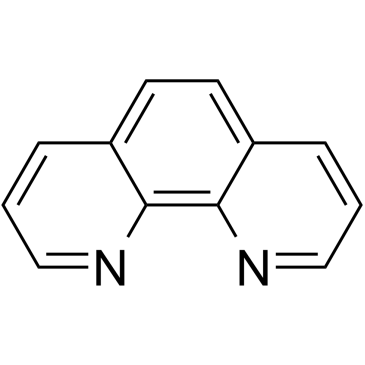

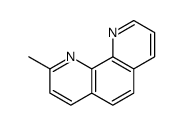
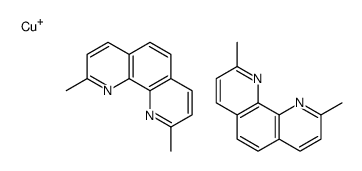

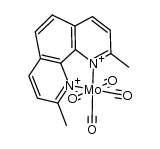

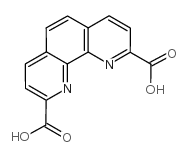

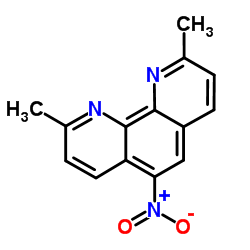
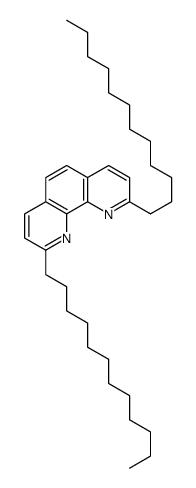
![2-methyl-9-[2-(9-methyl-1,10-phenanthrolin-2-yl)ethyl]-1,10-phenanthroline结构式](https://image.chemsrc.com/caspic/494/120096-06-2.png)
